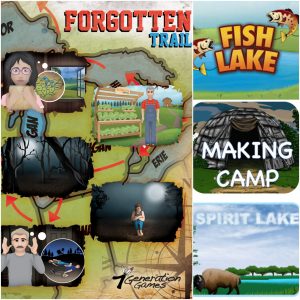My mom once told me that life is just a series of decisions. Every day we are faced with making new decisions- to apply for this job, to confront your friend about something that has been bothering you, to eat the last slice of cake. While there were many times that I could have definitely made better decisions in college (not dating certain fraternity boys), I also made many smart decisions that I would make again even if I had a chance to start college all over. Here are the top five best decisions I made in college.
1.) Working and interning all four years of college
I started working at the age of 14 and have had a job ever since. On the other hand, some of my friends have not worked a day in their lives because their parents support their decision to only focus on school. However, now that we are graduating, they are having a really hard time landing job interviews. Even my friends who have worked, but only in retail or customer service, are also experiencing the same thing. My sophomore year of college, I started working and interning at places that related to what I actually wanted to do after college. It’s important to learn to balance school with work experience because, in the real world, your work experience often matters more than your G.P.A. Plus, most of the post-grad job interviews I have gotten so far have been because a past boss recommended me for the position.
2.) Going to college farther away from home
Before I choose to attend UCLA, I almost went to UC Berkeley instead. At the time, UC Berkeley was ranked slightly higher than UCLA (now they are both tied for number one public university) and was only a 30-minute drive from my house. Since I am so close to my family, I knew that I would be coming home every weekend to see them if I went to Cal. I am glad I pushed myself to go farther away from home because it forced me to meet friends, join clubs and really make the most of my college experience. It’s often the situations that make you the most uncomfortable or afraid that help you grow.
3.) Picking a career-orientated minor
As annoyed as I get at my STEM major friends who act superior to me because they think that their majors make them smarter, a STEM degree tends to be more practical or translates more directly to a career than a humanities degree. That’s why minoring in Digital Humanities was a game changer for me. Choosing a minor wisely can really help make your humanities degree more career oriented. Plus, getting a minor in a field different than or related to your major is also more bang for your buck.
4.) It’s okay to ask for help
You’d be surprised at how many of my friends have said “I am going to fail this midterm” an entire week before the midterm has taken place. Some people would rather sit in their sorrow and confusion than ask for help. But not me. Any time I was ever slightly confused about something, I went to my professor’s office hours. In fact, most of the greatest writing feedback I have ever received has happened in office hours. Plus, going in to office hours is also how you get to know your professors. If you’re planning on going to grad school, you’re going to need letters of recommendations.
5.) Completing the Calculus Series-choose your G.E.’s wisely
Most people are excited for college because they finally get to focus on the subject they are most interested in, which for me was writing. However, it’s important to try to get as well rounded of an education as possible. In theory, colleges seem to push for this well-rounded model by requiring students to take general education courses across a range of subjects. But in reality, a lot of these courses that may count for math and science credit or writing credit, really don’t teach you math and science or how to write at all. For example, many of my friends took a course called “Human Sexuality” as their science class. But who knew that learning how to put a condom on a banana counted as a science? (Plus, I’m sure most college students are already experienced in that area.) I took a class about food for my science credit. (I learned that one dark chocolate chip a day is healthy for you, but any larger portion than that is actually not.) While these courses are enjoyable, it’s important to balance fun courses that don’t require a lot of studying, or even any studying at all, with classes that are actually useful. That’s why I decided to complete the calculus series. I remember that the STEM and Economics majors sitting next to me were shocked that as an English major, I enrolled in calculus as a choice. However, taking calculus was one of the smartest decisions I have ever made because I knew that I left each class learning something useful. My advice works both ways- if you’re a STEM major, push yourself to take an advanced writing course that actually teaches you how to write rather than looking up the easiest course to take that counts for writing credits.
A balanced education is also important to us at 7 Generation Games. In fact, our games teach both math and history. Making Camp Premium will teach language arts as well.


